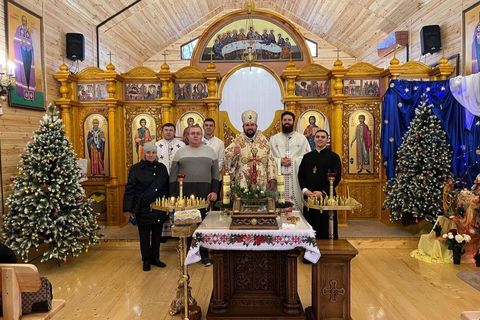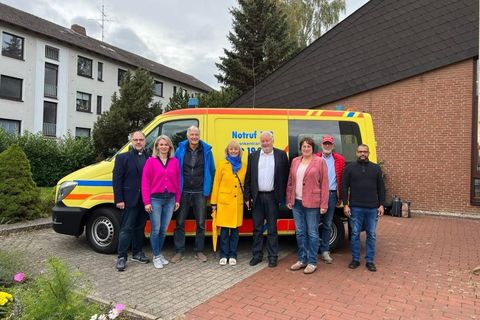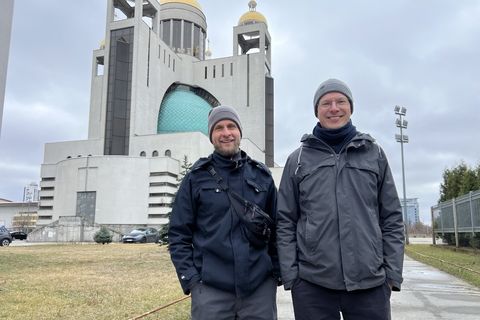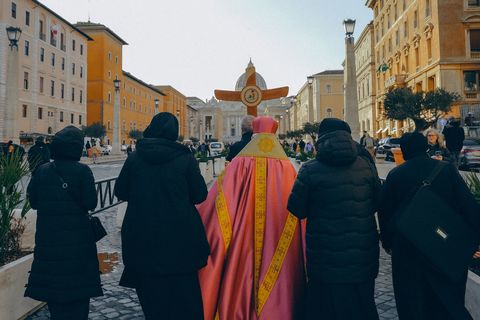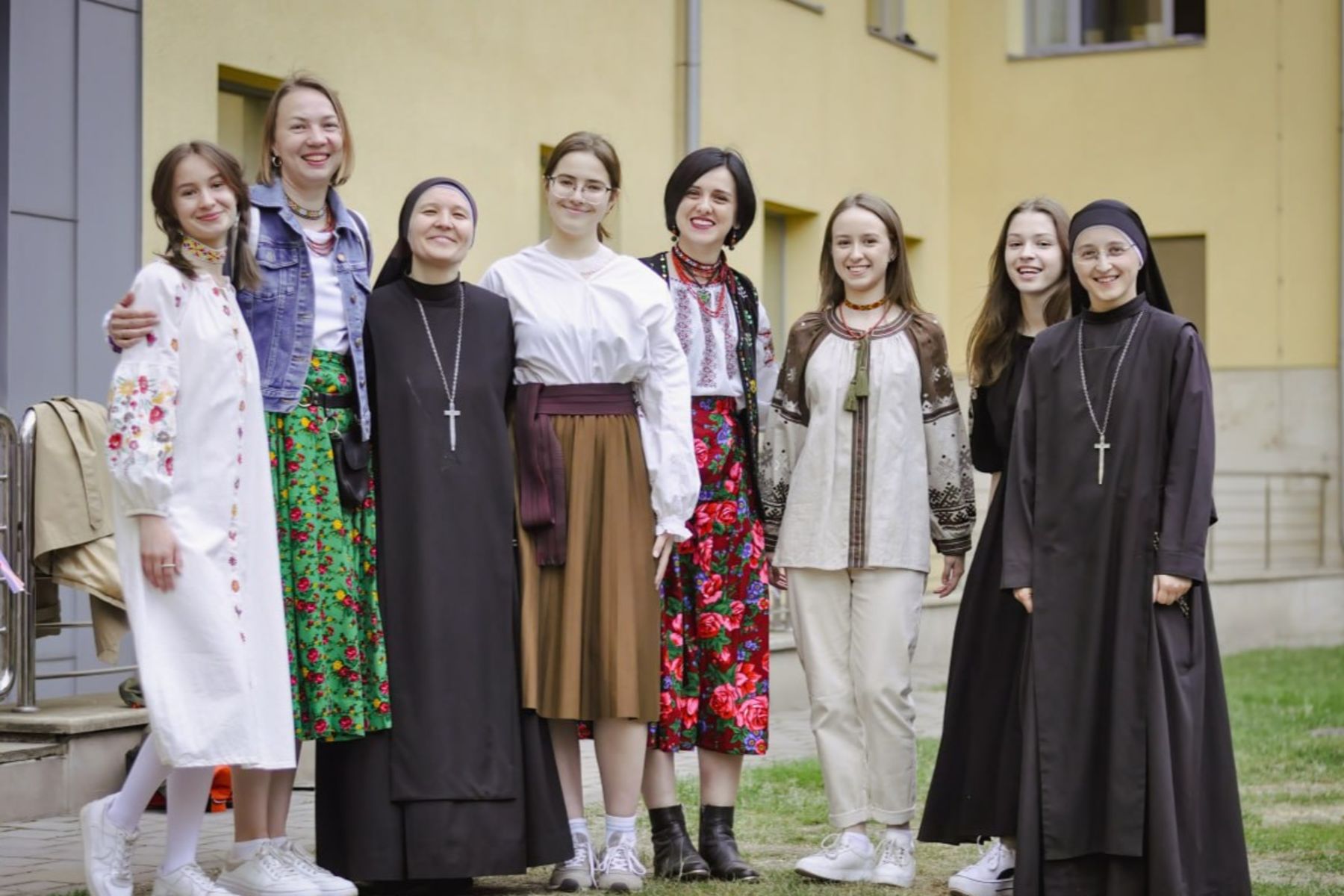
“I want as many young people as possible to become channels of God’s love and grace” — Sister Maria Radist
Within the premises of the Ukrainian Catholic University, nuns live alongside students. They have their own rooms and maintain an independent monastic community. Although currently only two sisters reside here, their lives and service continue to inspire the young people studying at UCU.
These are sisters from the Congregation of the Servants of the Lord and the Virgin of Matará—a monastic branch of the Incarnate Word (previously, Redemptorist Sisters served at the Collegium). They actively participate in student life through liturgies, pilgrimages, Collegium meetings, and even volleyball tournaments.
We spoke with one of them—Sister Maria Radist (meaning ‘Joy’) (Hrynyk)—who shared her vocation story, her life at the Collegium, and what she has learned from the students.
Sister Maria Radist joined the Congregation at a young age—just 17—but received a strong academic formation in Italy before beginning her ministry at the UCU Collegium.
Watch the video to learn more about spiritual formation, the challenges facing today’s youth, and how the sisters engage with students.
— Sister, could you share what led you to enter the convent?
— At the age of 14, I began attending youth meetings at our church. They were very engaging, and before long, I felt myself growing closer to God. At that age, your environment plays a huge role. My friends went to Liturgy every week, often went to confession, and somehow it felt natural for me to join them.
When I was 15, a friend and I took part in a retreat based on the Spiritual Exercises of St. Ignatius of Loyola. There, I discovered two very important things. First, that my life belongs to God, and He has a specific plan for each of us—including me—one that corresponds to our talents, abilities, and the mission He wants to entrust to us. Second, that there are two paths in life: marriage or consecrated life.
At the time, I had already been in close contact with the sisters for a year and a half, but I had never considered a religious vocation. I really wanted a big family—twelve children! I also loved sports: I played volleyball, went rollerblading, ice skating, and skiing. So I thought that if I entered a convent, I would have to give all that up.
During that time, a girl from our youth group entered the convent. I knew her well and asked her many questions about why she had made that decision. After our conversation, we went down to the chapel to pray. It was then that I realized God was calling me to give my life to Him. I spent three months reflecting on this before deciding to take the first step on the path of complete dedication to God. Those three months were right before I finished school.
That period of reflection was difficult. I was scared because I focused more on what I thought I would have to give up than on what God might give me. But in the end, He didn’t take anything from me.
All those material things—and even our own free will—which we surrender, actually bring us tremendous freedom and a deep, lasting happiness that cannot be compared to anything else.
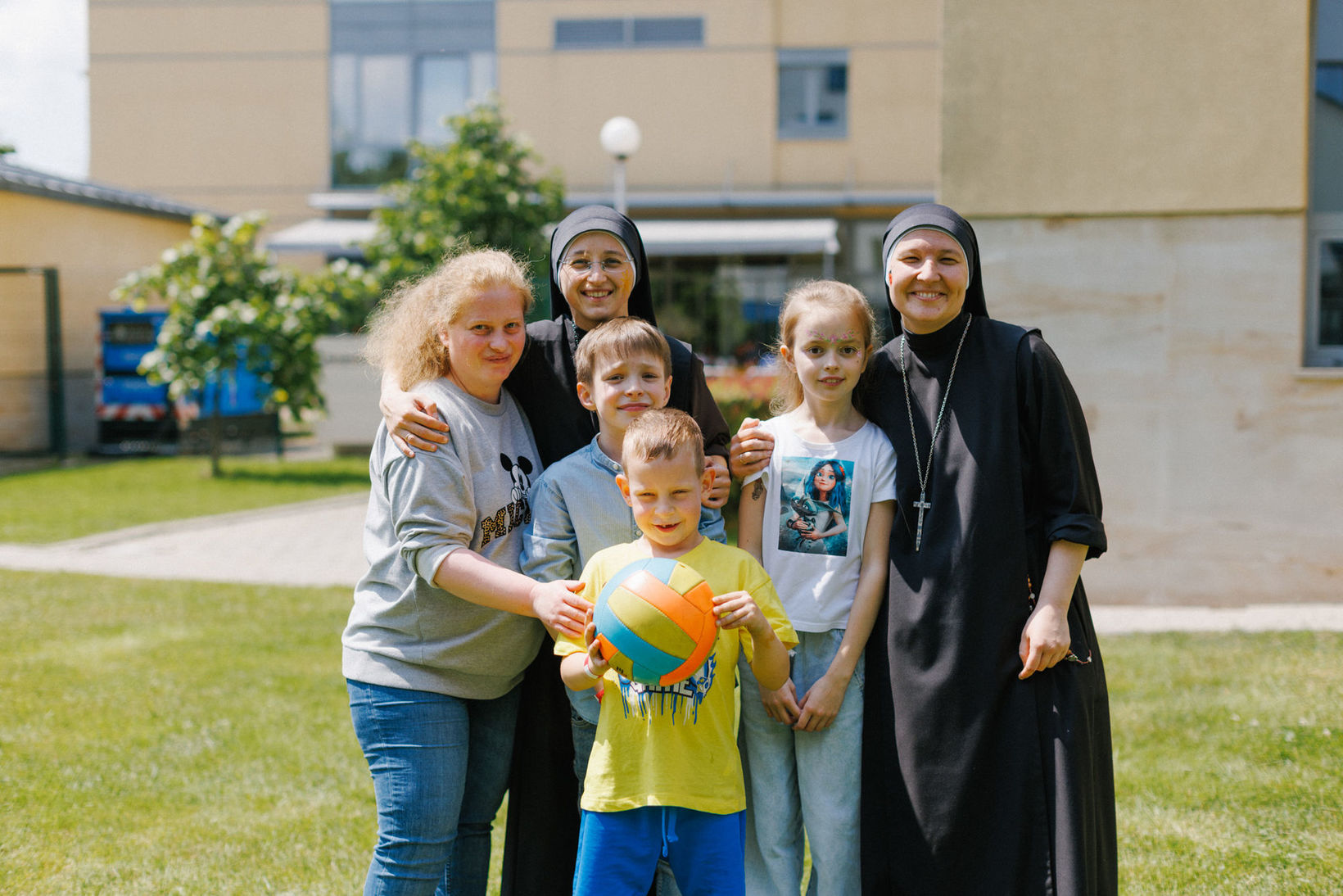
— Sister, how did you come to live at the UCU Collegium?
— I moved into the Collegium with Sister Maria Blazhenna a year and a half ago at the request of the administration, because the sisters who had been here before us [Redemptorist sisters — ed.] had completed their service. So they invited sisters from our congregation.
Before that, I had been studying in Italy. And so it was God’s providence that this request coincided with the completion of my studies. We began our service at the UCU Collegium in the second semester of 2024.
— Were you afraid of being invited to the Collegium? Perhaps you might have had other plans?
— I had always wanted to work with young people, ever since I entered the convent at the age of 17. So when I heard about the opportunity to serve at the Collegium, I was thrilled.
Remembering that it was thanks to the priests and nuns of our congregation that I personally began to rethink my faith more deeply and draw closer to God, I very much want as many young people as possible to have the opportunity to experience living Christianity and become channels of God’s love and grace.
So I can say that the invitation to the Collegium stirred in me a deep desire to be an instrument in God’s hands—to pass on to others the gift of faith that I myself have received.
— Sister, please tell us about the students you work with.
— UCU students come from different regions of Ukraine. Consequently, this is reflected in their religious background. Their religious experience also depends on how they were raised in their families. That is why personal communication is the most important part of my work. It is encouraging to know that students are open and ready for discussion.
Everyone follows their own path to God. Some are very close to Him, some are getting to know Him here at UCU, and some still have to walk this path in the future. God’s teaching method is unique for everyone. We try to understand what students need and help them.
— How do you interact with students at the Collegium?
— We conduct a formation program called “Christian Spirituality in the Postmodern Age.” It comprises a wide range of activities, some of them religious, others more intellectual or entertaining.
As for religious events, we have retreats before Christmas and Easter, Taizé prayers every Tuesday, “Winged Prayer” every Wednesday, and “Prayer of Praise” led by students every Thursday. There is also a gathering called “On Wings” every Monday.
We have a very nice tradition called “Tea with the Sisters.” We get together with the students, drink tea, talk, and play different games.
We also hold Colehivka events for the entire Collegium. We have over 600 students living here, divided into 15 wings. In the first semester, Colehivka is a themed competition between the wings, and in the second semester, they participate in the Aloe Film Fest, where each wing makes a film. This year, we also held a volleyball tournament and the traditional Night at the Collegium.
Overall, the program is quite engaging. However, there are times when students are more occupied with their studies, exams, and project preparation. During these periods, it is more challenging for them to participate in events.
— What is your relationship like with students who have been directly affected by the war — those who have experienced occupation or lost their homes?
— Of course, not all students are ready to share such experiences, but I know quite a few students who were forced to relocate. One girl first lived in Donetsk, then in Bucha, and later in Kyiv.
It is indeed invaluable when students open up so that we can share their painful experiences and pray for them and their families.
This year’s Taizé prayers also included testimonies and prayers for Ukrainian cities, especially those most affected by the war. Students spoke about their hometowns—some described their homes and highlighted the beauty, the good memories, and what they love about them. Others shared their pain, recalling how old they were when they had to leave. They also spoke about their volunteer work, particularly during the early days of the war. After sharing their stories, the students expressed gratitude for the opportunity to speak—to reflect, to relive their experiences, and sometimes even to see things in a new light and take another step toward healing and letting go. It is a great blessing for us to be close to them.
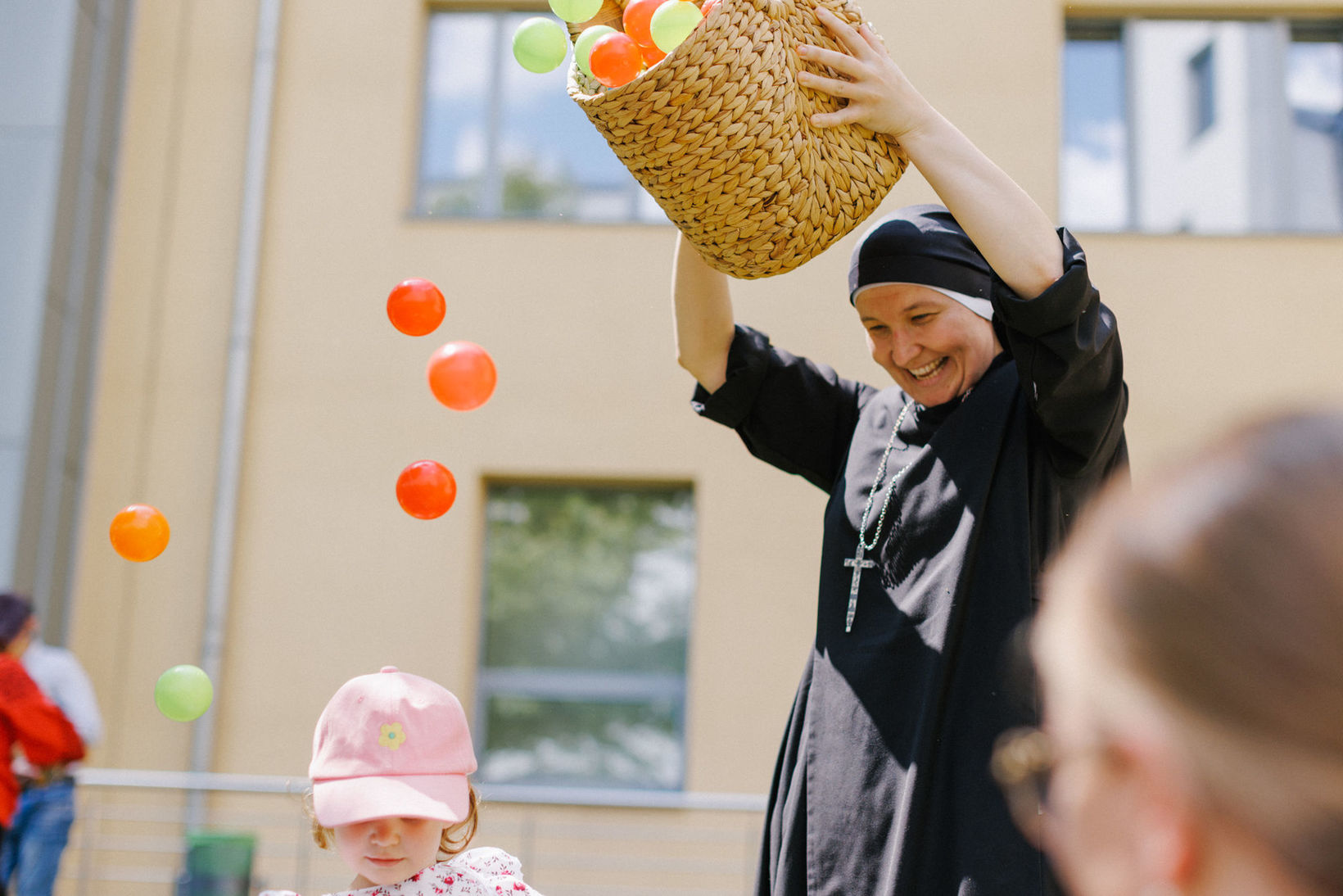
— Have you ever seen a time when the students’ faith was wavering and they needed support to strengthen it?
— Of course! Each of us faces certain difficulties, especially because of the war. For example, someone in the family has to go to the front. Then there are many questions, worries, and doubts revolving around. At such times, our students especially need support and prayer. I am amazed at how much they value prayer. When you promise to pray for them, it really becomes a source of strength.
— What role do consecrated persons play in helping students develop their faith?
— When we came to the Collegium, Father Yuriy Kozlovsky was the Master. He explained the mission of the sisters and said something very valuable: “The most important thing is that you are here.” A consecrated person, whether a priest or a monk, is a witness to God simply by their presence. When people see us, they naturally raise their thoughts to Him.
So above all, we try to lead by example, to offer support through our words, and simply to be present.
— What is your role in the Collegium in shaping its overall spirit and environment? Young people inevitably make mistakes as part of their growth. Do you allow them to make these mistakes, or do you try to prevent them from doing so?
— Our mission at the Collegium is, first and foremost, the spiritual formation and guidance of students.
When we first came here to serve, we understood that we had over 600 souls God entrusted to us. At the same time, we realized that the two of us would not be able to communicate closely with everyone. Therefore, it is very important for the students to witness to each other.
We saw how people were discovering God through community life. For example, there were two girls living in a room who were active Christians, and a third who, for various reasons, had drifted away from God. Her friends helped her to deepen her faith.
We try to form students, to help them become apostles of Jesus Christ, so that they can then become apostles to others.
Of course, everyone makes mistakes in life—and through them, we gain experience. But some mistakes leave lifelong consequences. Our mission here is to accompany young people and help shape their values, so they can freely choose what is good—not out of pressure or mere obligation, but out of love.
In the end, the choice is always personal.
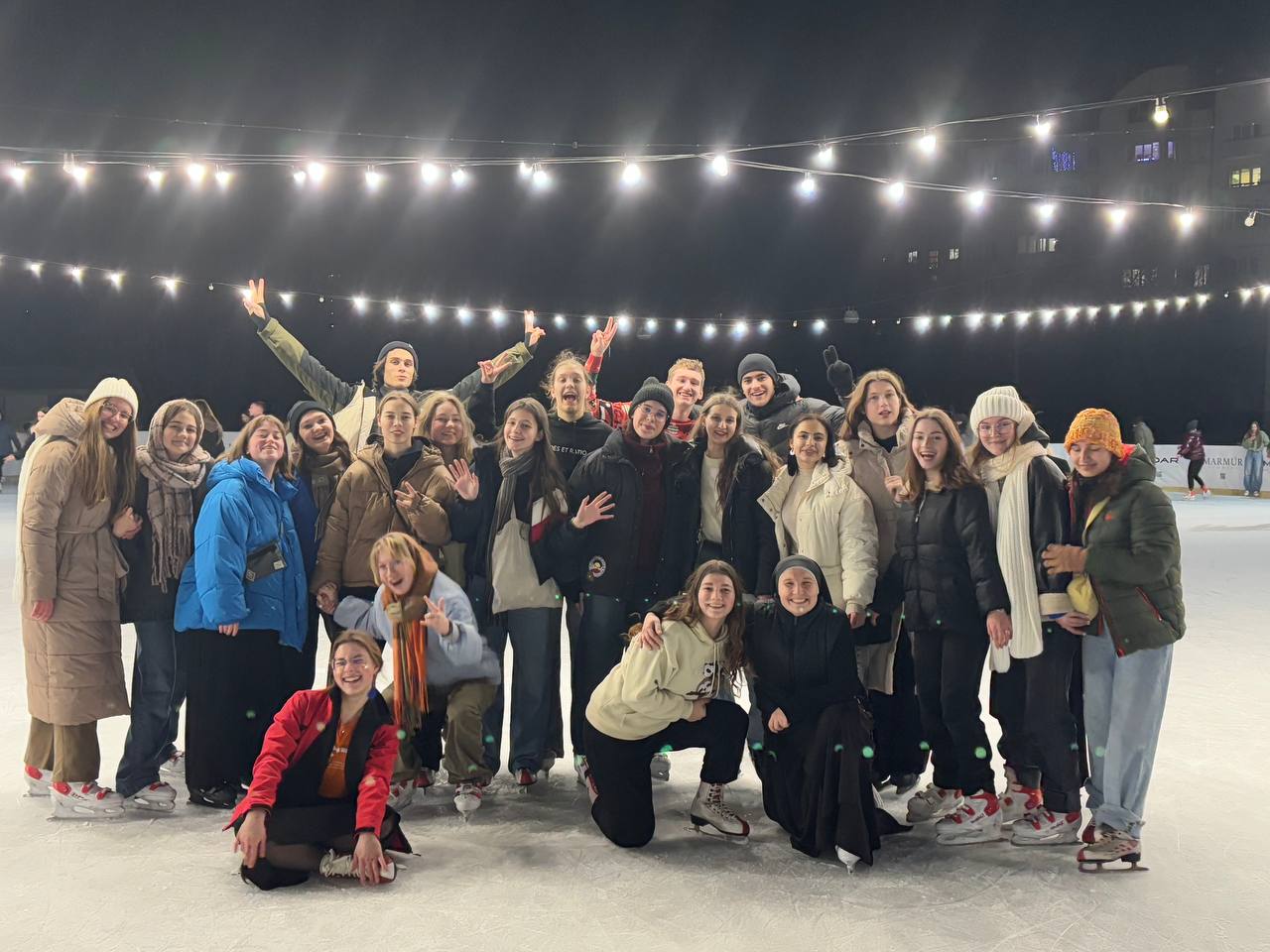
— Sister, how would you describe the main challenge of your meeting with students?
— The biggest challenge for me is the lack of time, because contact with students and closer communication with them shows how much care, love, and high ideals they need.
I would very much like to devote attention to everyone, to talk to each one, but it is difficult.
Another challenge for us is to be able to spend enough time with those for whom we live and work.
In order to be able to help students and answer their questions, we need to live our monastic vocation fully and devote sufficient time to prayer.
As one saint once said, it is only through this way that we can move from people to God and from God to people, bringing His forgiveness and love to them.
It’s interesting how, at first, students passing by seem somewhat wary of us. But gradually, relationships start to form—they begin to see that we’re just people like them, and that we want to be their friends. By the end of the academic year, the interactions become much more relaxed.
Of course, we encounter a variety of students. Some, for one reason or another, haven’t come to know God, or have distanced themselves from Him. Naturally, it’s harder for them to connect with us. But these students are few in number.
— What advice can you give to young people today to help them find their way to God?
— Young people are naturally in search of themselves, their place in the world, and the meaning of life. That’s why they inevitably ponder the existence of God and His role in their lives.
Some find Him quickly, others take more time, and some reject Him for various reasons. But one way or another, everyone faces this question.
Faith is a gift. To come to faith is to open oneself to God’s grace. Since each of us is unique, God works in different ways within each person’s soul. That’s why I could never give a one-size-fits-all answer on how to come closer to faith. But I am deeply convinced that when a person opens themselves, God always reveals Himself. Faith is a special, personal encounter with Jesus Christ, and it can happen in the most unexpected ways.
So, perhaps my advice would be this: don’t be afraid to seek Him, because God always reveals Himself to those who seek Him. And those who do so sincerely can never miss Him.
This is what we see here every day!
— There are many different locations at the university. Which one is your favorite and why?
— Probably the chapel on the second floor of the first Collegium building, where we live. It is a very important place. We say all our personal prayers there. Many students say that what makes the Collegium special is this opportunity to come to Jesus in the Eucharist and share their anxieties, experiences, and joys.
— University is a place of learning. What are you learning here?
— Young people are extraordinary because of their enthusiasm, their longing for good, truth, love, and great ideals—and that is truly inspiring! Their desire for beauty, to make the world a better place, and their concrete actions toward this goal cannot help but inspire us, as does their love for their homeland. Looking at them, one can truly feel hope for a brighter future.
— University is also a certain community. Which communities have become dearest to you?
— My first community is our monastic community. Although there are only two of us, it is very precious. The college administration, with whom we communicate very closely, has also become like a second family to us. Another very close community for us is the curators [mentors who live together with students at UCU — ed.].
We are also involved in various student communities, such as the Taizé youth group, the Fides et Ratio Christian youth community, and the community of young Christian leaders.
— How do you encounter God in your communication with students?
— As I mentioned, students are very different, so their personal and spiritual experiences are also different. In my opinion, the image of God they form is influenced by many factors: their life and personal experiences, family background, and the example of their earthly father, through whom we come to understand fatherhood and, consequently, God. The examples of priests they have also play an essential role here.
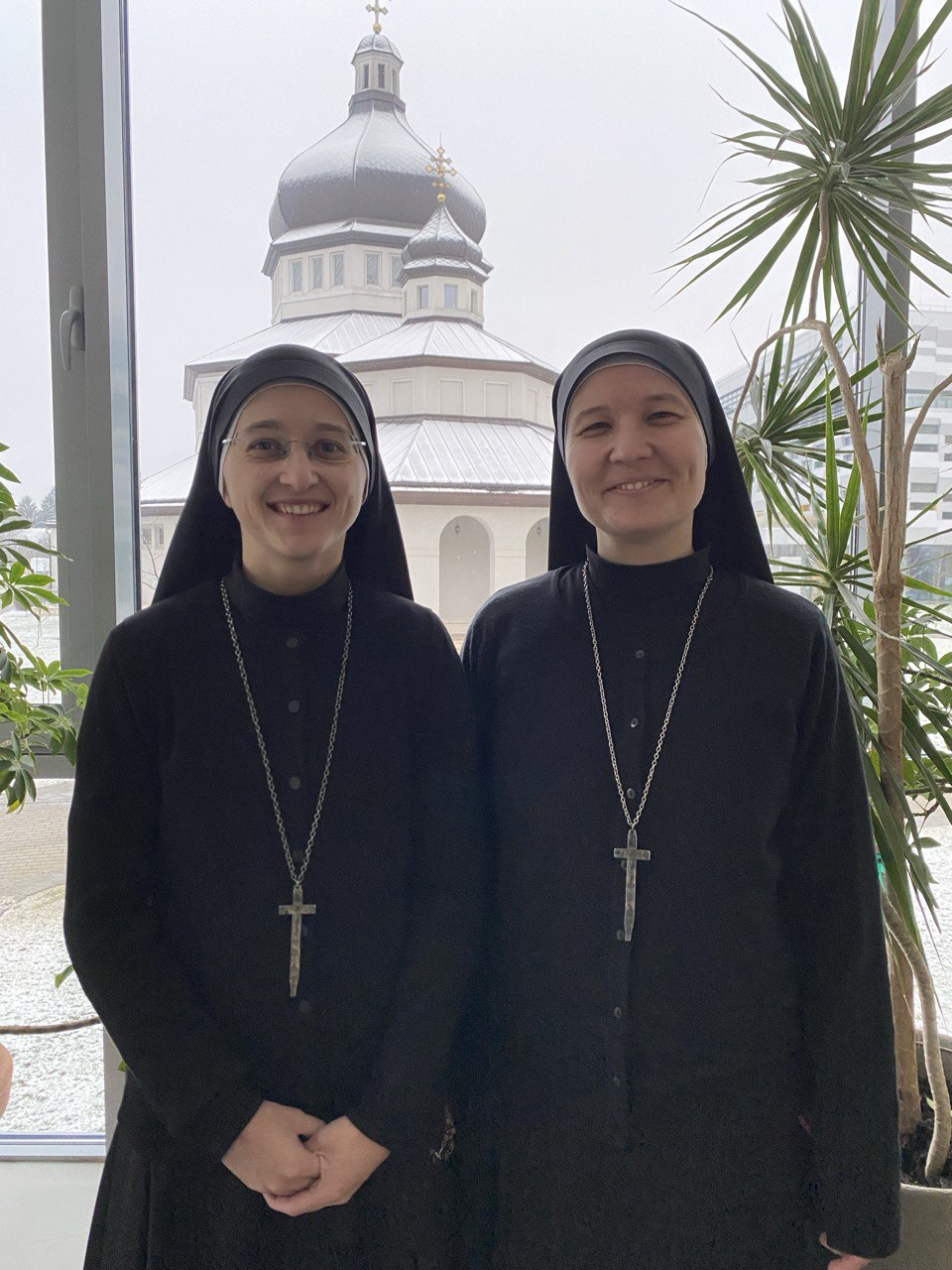
If we delve deeper into the Holy Scriptures, we will see clear characteristics of God, and the more the Lord reveals Himself to human beings, the more they come to know Him and His divine fatherhood and providence. Therefore, regardless of their previous experience, part of our apostolic work is to help people see who the Father is, as revealed by Jesus Christ, because our lives truly depend on the image of God.
God desires only our happiness. The sufferings and tests of life are given so that we may grow in virtue, spiritually, and one day arrive at the harbor of our salvation.
Interview by Nadiya Ilchuk
Text: Nadiya Ilchuk
Video: Petro Didula
